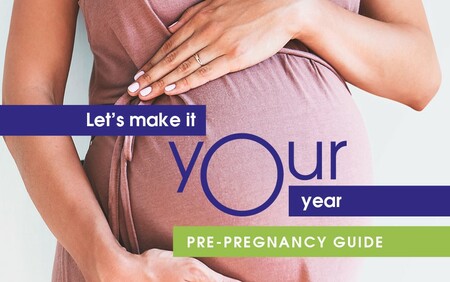
Let's Make It Your Year - Week 3
Standard fertility tests look for underlying reproductive conditions, such as PCOS, endometriosis or low sperm count, which can affect your chances of falling pregnant naturally.
If treatments for these conditions are unsuccessful, or in the case of unexplained infertility, there are more complex investigations that fertility specialists can undertake to identify the cause, and help you to conceive.
Older age:
- The single most important factor influencing fertility is a woman’s age, as her egg count and egg quality declines as she gets older, particularly after the age of 36.
- A man’s age can also cause infertility with studies indicating that sperm quality declines with age and there is an increased possibility of sperm DNA damage, which could result in complications in pregnancy, and after birth.
Recurrent miscarriage:
- Sadly, miscarriages are a common occurrence, with one in six pregnancies ending before week 20. Miscarriages can result from many reasons, include chromosomal, genetic or uterine abnormalities, the woman and man’s age, and hormonal imbalances . Most patients who experience miscarriage will go on to have a baby, so it is important to stay positive
- Specialists can conduct investigations to test for the possible cause of miscarriages and provide specialised care during the next pregnancy. The most commonly recommended tests for recurrent miscarriage is preimplantation genetic testing (PGT-A).
Chromosomal variations:
- Chromosomal variations are caused when an embryo has a missing or extra chromosome.
- These variations can affect up to 70% of early human embryos, with most causing the embryo to stop developing. A fertility specialist may recommend preimplantation genetic testing.
Thin endometrium (womb lining):
- A thick endometrium is required to provide a site for proper implantation of a fertilised embryo and support its growth.
- If the lining becomes thin, it is difficult for the embryo to implant to the wall which may result in difficulties conceiving.
High sperm DNA fragmentation
- High sperm DNA fragmentation means that there is a higher than usual level of fragmentation of the DNA (genetic material) in the sperm.
- A sperm DNA fragmentation test is sometimes suggested for males.
Fertility tests
Women:
Ovarian reserve (AMH) test:
- An AMH test looks at the level of the Anti-Mullerian Hormone in your body, which is a good indicator of how many eggs you have left, and fertile years ahead.
- However, it is important to remember this test doesn’t determine the quality of those eggs and that a women with a low AMH level will have the same chance of conceiving naturally.
Ultrasound scan:
- Checks the lining of a your womb and overall structure.
- Helps diagnose any underlying conditions such as fibroids or ovarian cysts.
Men:
Semen analysis:
- The semen analysis test accurately measures the number of sperm, their motility (ability to move), morphology (size and shape), and the volume and consistency of the sample.
- A normal semen analysis result will show a sperm count of at least 15 million sperm per ml, with at least 40% of the sperm showing forward progressive movement.
Fertility Check Up
Sometimes you just need the right advice to help guide you along the way. So, we have conveniently put together a Fertility Check Up assessment. A fertility specialist can assess your overall reproductive health and conduct some simple tests to help identify any underlying causes of pregnancy delay.
This includes:
- A pelvic ultrasound for the woman
- A semen analysis for the man, and
- A couple’s consultation with one of our fertility specialist, who can explain the results and develop a plan for pregnancy

Omega-3 Fatty Acids
Omega-3 Fatty Acids have been known to promote fertility, and a healthy pregnancy. The Dietologist's Maple, Ginger and Sesame Salmon is packed with healthy goodness and omega-3!

Warrior Princess Shape Workout!
Get fit and healthy with Warrior Princess' full body Shape Workout!

Mindfulness Podcast: Shame
Judith Krause covers the topic of shame - but not in the way you think.
Need a fertility friend?
During this programme you can head to our private Facebook group and chat with others who are trying to conceive. Hearing the experiences of other people on a similar fertility journey can be an invaluable source of support and encouragement.
Upcoming information Evenings
Hear from our fertility specialists on what factors affect your fertility and what you can do to maximise you chances of conceiving.
In case you missed it last week: Week 2 of Let's Make it Your Year >>>>